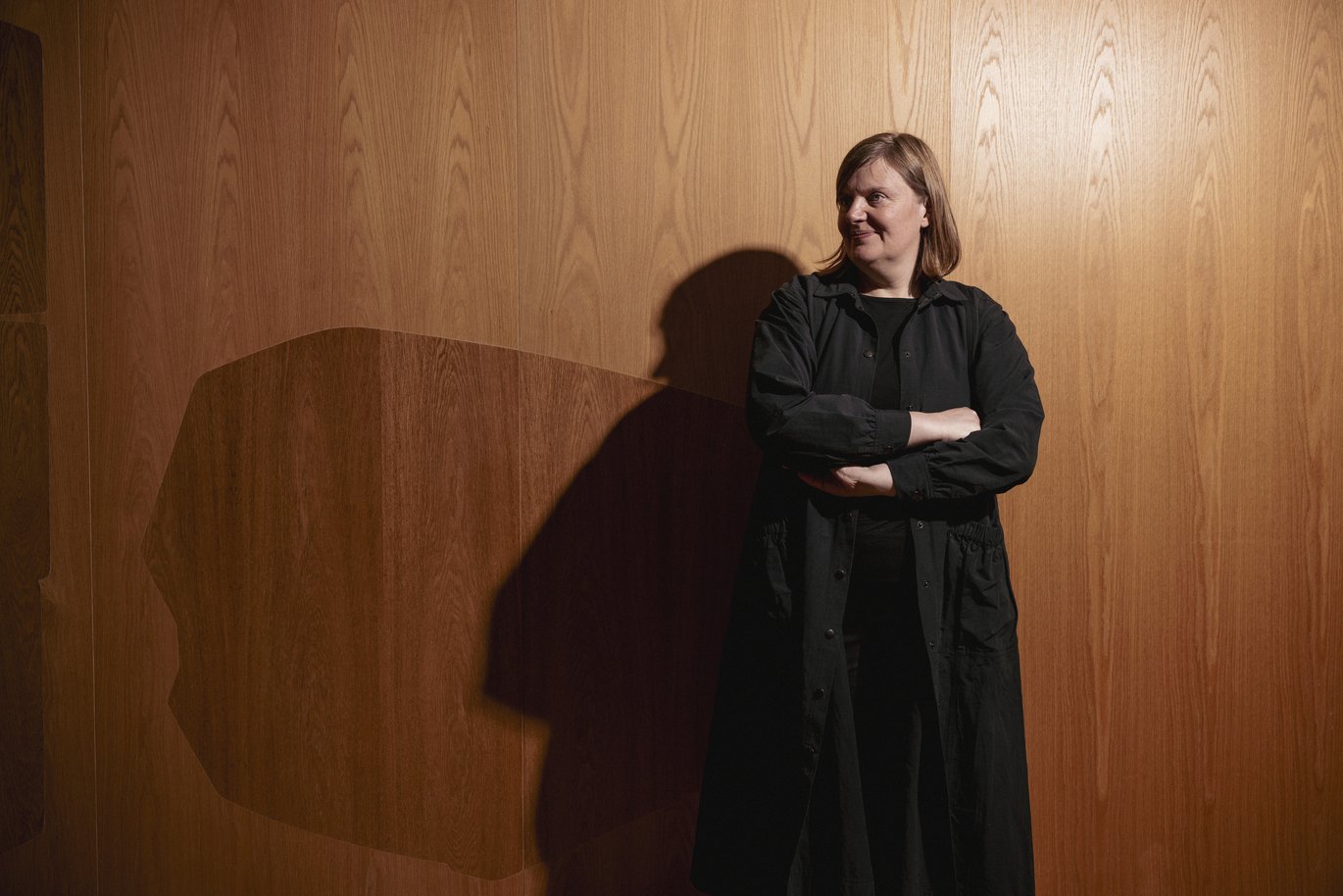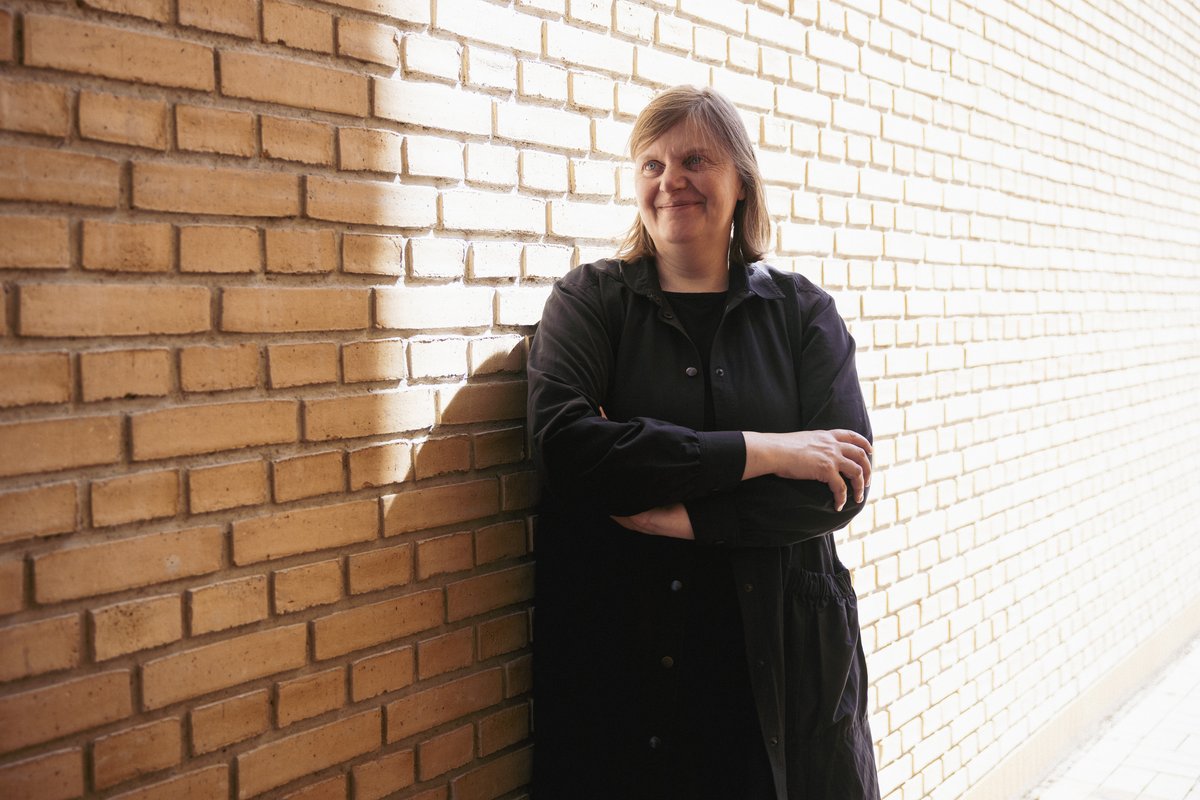New joint union representative: "We shouldn't exploit the fact that this team is a dream for many"
Agnete Larsen is an associate professor of biomedicine and the new union representative for academic staff at Aarhus University. She wants to work for a stronger sense of community in a competitive culture, room for diversity, and she recognises that academia can be tough for young researchers who want a career in academia.

About Agnete Larsen
Associate Professor at the Department of Biomedicine.
PhD in medicine from Aarhus University in 2005.
Graduated from Aarhus University as a medical doctor in 2002.
Joint union representative for academic and administrative staff with an academic background at Aarhus University since March 2025.
Lives in Hinnerup north of Aarhus and is the mother of two sons.
In March, Agnete Larsen became the new joint union representative for academic staff at Aarhus University. She is an associate professor and medical specialist at the Department of Biomedicine, where she researches pregnancy and foetal development and teaches pharmacology to medical and dental students. She continues to do both in parallel with her new role as joint union representative.
She is currently involved in a project on vitamin D and pregnancy. The project is a cohort study in which Agnete Larsen and her colleagues are following 2,000 pregnant women. Later, they will also have the opportunity to follow the children. For a number of years, she has researched the use of medicines during pregnancy and the effects they have on the pregnant woman and the unborn child.
"This is an area where both negative and non-negative results carry a lot of weight. Being able to conclude that there is no risk associated with a particular drug makes a difference to pregnant women's peace of mind. It's also important to help ensure that women who take medication or are ill can have a safe pregnancy," she says, emphasising that she also finds great meaning in teaching the students.
A True AU Person

Agnete Larsen has always sought a meaningful job where she can make a difference. This was also the reason why she chose to study medicine - although after a brief detour into law.
Agnete Larsen took her Hippocratic Oath in 2002, completed a PhD at Aarhus University, and in 2010 was appointed associate professor at what was then the Department of Anatomy. The following year, she moved to the Department of Pharmacology, which is now known as the Department of Biomedicine.
Although she has had a long career at AU, it’s only six years since she first took on the role of union representative at the request of her former union representative. After considering it for a while, she accepted the challenge - first as a local union representative and then as a joint union representative at the Faculty of Health.
A leadership team is also an echo chamber.
"After a series of university reforms, universities have gradually become organisations with top-down management. Liaison committees may sound very dry, but it's a forum where management meets staff representatives they haven't selected themselves. A management team is also an echo chamber, and I see participation in these committees as an opportunity to contribute to reflection and to help shape the organisation," she explains.

When Caroline Adolphsen, the then joint union representative for academic staff at AU, was promoted to professor and consequently resigned from her position, Agnete Larsen volunteered and was elected in an uncontested election.
What do you want to achieve as a new joint union representative?
"It is important that AU improves its efforts to ensure a decent and psychologically safe working environment, where we can disagree constructively and engage in professional debate or disagreement without it becoming personal."
It's important that AU gets better at ensuring a decent and psychologically safe working environment.
Agnete Larsen is concerned with ensuring that AU remains a good and decent workplace. As a government institution, the university should be a role model in this regard, she believes.
"For me, the benchmarks of a good workplace are that it's fair, that it provides good opportunities for everyone and that it develops employees - you should be better when you leave the workplace than when you came in."
In her more than 20 years at AU, she has found the university to be a predominantly good place to work:
“Here, you can take a playful approach to your field, with autonomy and opportunities for immersion and challenges,” she says.
An eye for young researchers on the rise
But she also has an eye for the fact that the academic world can be a tough place, especially for young researchers hoping to make their mark in academia. She believes the university must act with integrity here:
"By integrity, I mean that the university ensures decent conditions for employees and doesn't exploit the fact that playing on this team is a dream for many,” she says, continuing:
When others really want to be where you are, it can be tempting to take the privilege a bit too much for granted.
"Obviously not everyone has to stay here, some are only here for a few years, and you don't play for Real Madrid your whole life. When others really want to be where you are, it can be tempting to take the privilege a bit too much for granted," she says and appeals to the university not to exploit the passion of young researchers.
Whether you're here for a short stay or have spent a long career here, you should be happy when you come and happy when you go," she says.
At the same time, she is keen to ensure that the university does not only produce one type of researcher.
"There's no point in different types coming in if only one type sticks around," she says.
She therefore calls for more transparency in terms of hiring criteria and career paths. And an openness to the fact that research talent can be cultivated in many ways. This applies, for example, to studying abroad, which she definitely recognises the value of, but doesn't think should be a rigid requirement for everyone.
"We have to be careful with one size fits all, because we don't want to end up with a hard box that can't accommodate different types of talent," she says.
Other people's opportunity is not my loss
In her time as a joint union representative, Agnete Larsen also wants to strengthen the professional community in an otherwise competitive culture.
"There is no contradiction between collaboration and community and individual ambition. "We actually have a greater chance to be unique when we work together. Someone else’s opportunity doesn’t have to come at my expense," she says, recalling a research director course she once attended, where one of the lecturers described a successful research career as 'a rocket, fueled strategically by young talent.'
"I could do without that attitude," Agnete Larsen says.
This text is machine translated and post-edited by Cecillia Jensen.



